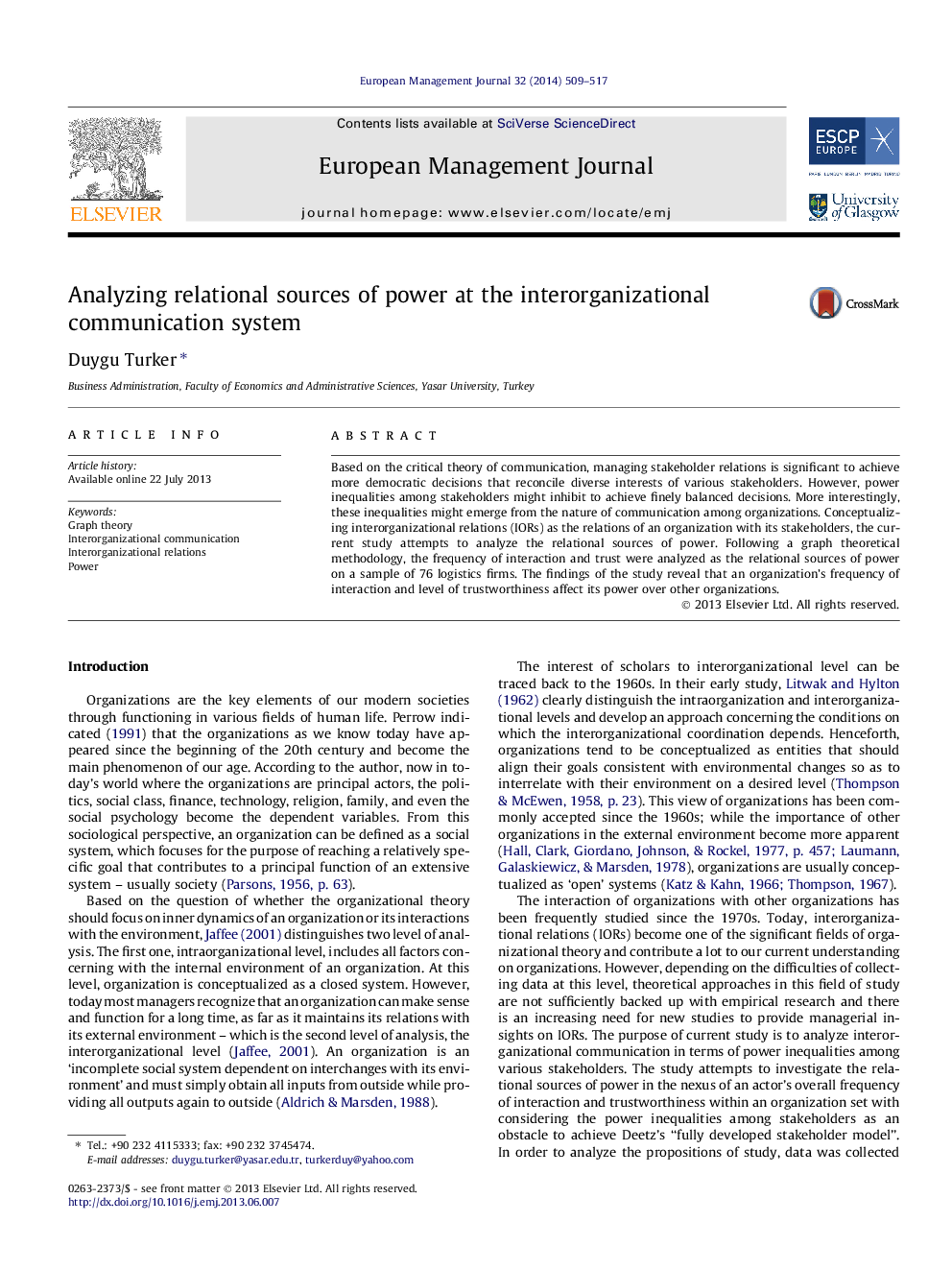| Article ID | Journal | Published Year | Pages | File Type |
|---|---|---|---|---|
| 1014874 | European Management Journal | 2014 | 9 Pages |
•The study analyzes the power inequalities among stakeholders.•A graph theoretical methodology was followed on a sample of logistics firms.•The power might stem from an actor’s frequency of interaction and trustworthiness.
Based on the critical theory of communication, managing stakeholder relations is significant to achieve more democratic decisions that reconcile diverse interests of various stakeholders. However, power inequalities among stakeholders might inhibit to achieve finely balanced decisions. More interestingly, these inequalities might emerge from the nature of communication among organizations. Conceptualizing interorganizational relations (IORs) as the relations of an organization with its stakeholders, the current study attempts to analyze the relational sources of power. Following a graph theoretical methodology, the frequency of interaction and trust were analyzed as the relational sources of power on a sample of 76 logistics firms. The findings of the study reveal that an organization’s frequency of interaction and level of trustworthiness affect its power over other organizations.
